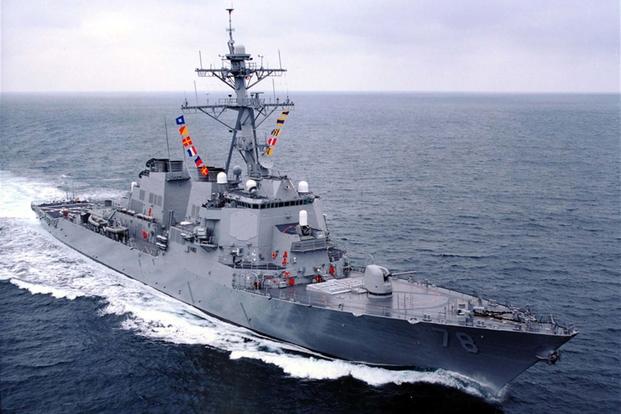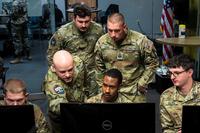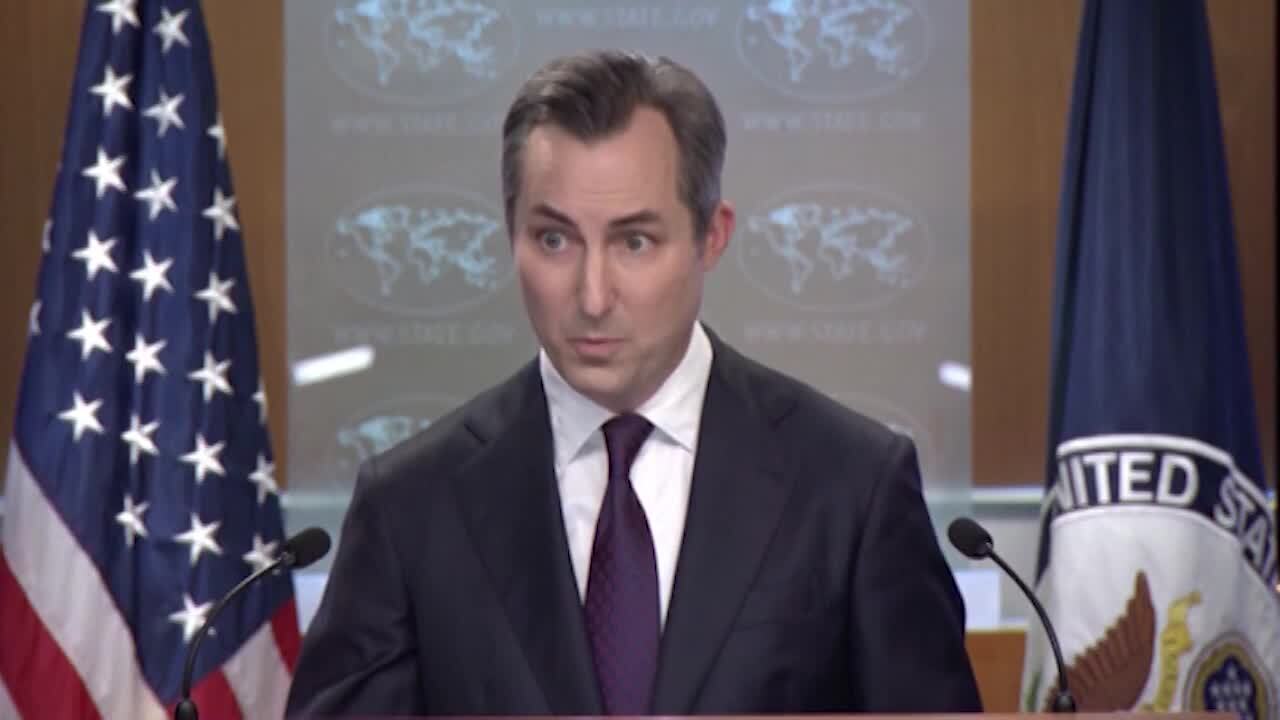ORLANDO, Florida -- Russian pilots buzzed the guided missile destroyer Porter repeatedly last month, but also had "relatively large number of interactions with" U.S. and NATO aircraft the same day, according to the Defense Department.
The DoD shared new details regarding interceptions that took place Feb. 10, "some of which were deemed to be safe and standard and some of which were assessed as unsafe and unprofessional," according to a statement from the Office of the Secretary of Defense provided to Military.com
The USS Porter incident involved Su-24 Fencer attack aircraft and an Ilyushin Il-38, an anti-submarine warfare and maritime patrol aircraft, near the warship in the Black Sea on Feb. 10.
The Porter was approached by multiple aircraft that did not have their identifying transponders on, according to U.S. European Command.
Related Video:
Russian Fighter Jets Buzz USS Porter in the Black Sea
But there were "a number of intercepts of U.S. aircraft by Russian aircraft and an intercept of a Russian aircraft by another NATO-flagged aircraft," that day as well, the DoD statement said.
An Air Force official told Military.com on Friday that officials do not believe the Russian aircraft involved in intercepting the U.S. planes were the same ones involved in the USS Porter flyby, and do "not want to give further specifics."
The official also said that the intercept of the Russian aircraft by NATO aircraft "is not the first time this has happened. This happens almost every time U.S. and NATO aircraft fly -- especially in the Baltics." The official added that "vast majority of intercepts" from either side "are safe and professional."
The DoD chimed in after Gen. Tod Wolters, head of U.S. Air Forces in Europe and Africa, cited four interceptions of NATO aircraft on Feb. 10 during a media roundtable Thursday.
Wolters told reporters at the Air Force Association's Air Warfare Symposium here that there were four aerial-to-aerial incidents, involving Su-24 Fencer attack aircraft and an Ilyushin Il-38. The aircraft Wolters cited were the same type of aircraft that buzzed the Porter.
Originally, Wolters said the Russian aircraft had intercepted NATO planes -- not ships -- but he couldn't recall the particular aircraft affected. When asked again by Military.com what countries the aircraft came from, he said he was "pretty sure it was U.S." aircraft.
Wolters was attempting to speak to a trend of aerial provocations by Moscow winding down, the official said.
"General Wolters' comments stand for themselves, and his main points bear repeating. He assessed that the trend of unprofessional engagements with Russian aircraft has plateaued over the past six months," the OSD statement said. "The individual examples cited should not detract from the overall assessments that unsafe and unprofessional interactions with Russian aircraft represent a small minority of what occurs within international airspace."
"We provide information back to Russia when they do occur to make sure we can get an answer," Wolters said Thursday.
But from a "training perspective" the overall number of interceptions "have plateaued. We continue to keep close watch. Each and every one of those engagements is different than the other," he said.
When asked if he believes incidents occur because of pilots' poor judgment or because Moscow is reacting to policies imposed by the West, Wolters said the issue stems largely from errors in judgment. But "I believe there's a little bit of both."
-- Oriana Pawlyk can be reached at oriana.pawlyk@military.com. Follow her on Twitter at @Oriana0214.
.




























